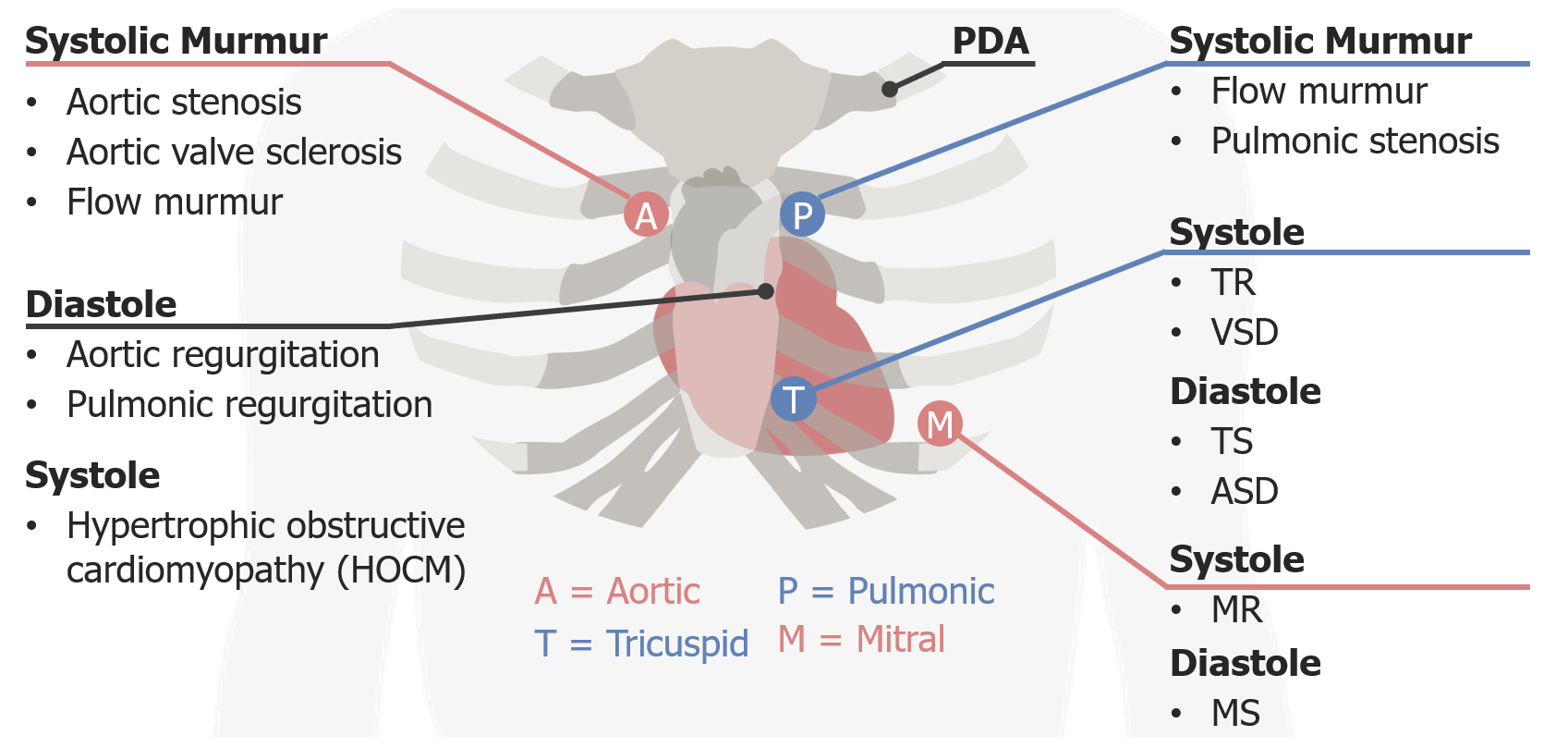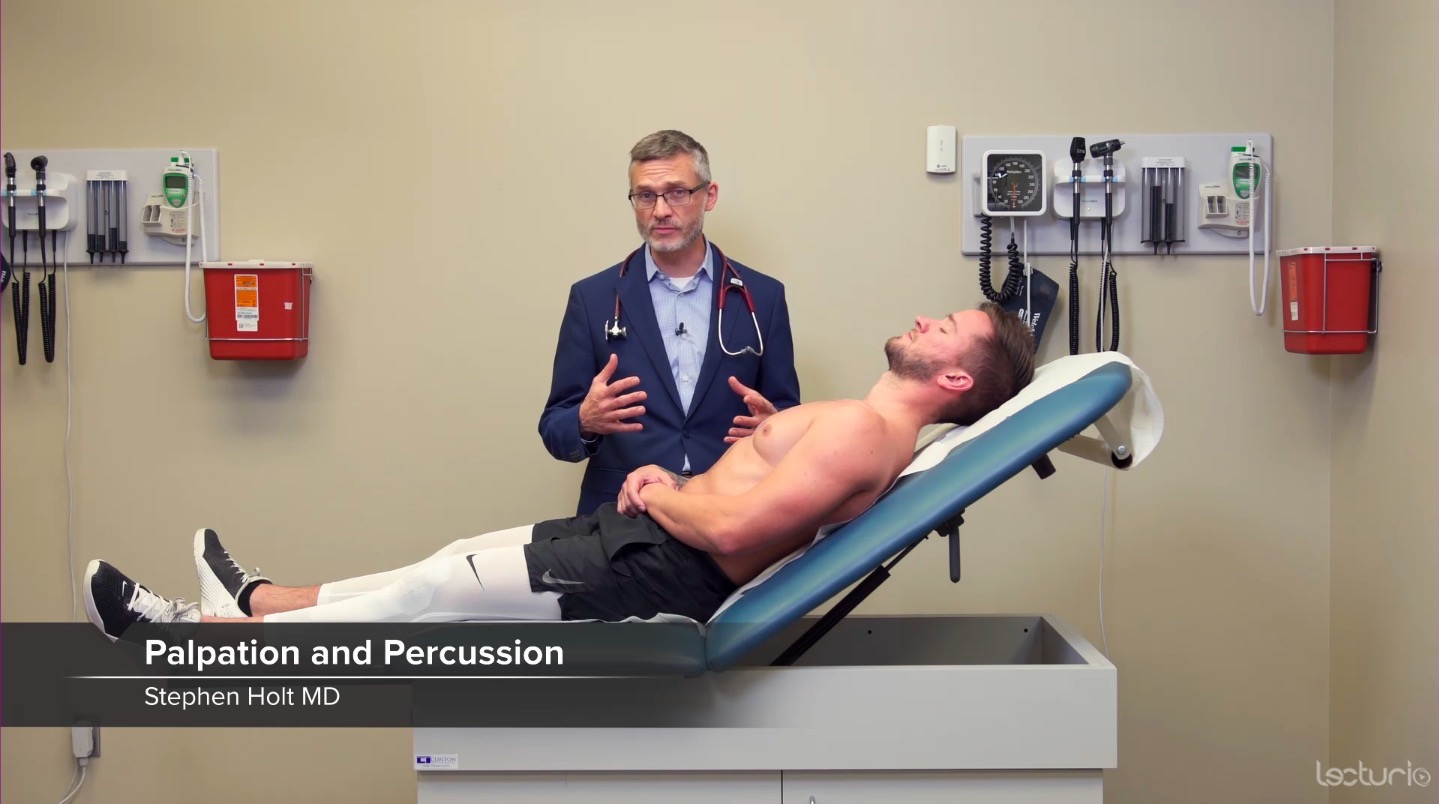Playlist
Show Playlist
Hide Playlist
Functional or Flow Murmur – Systolic Murmurs
-
Reference List Physical Examination.pdf
-
Download Lecture Overview
00:01 The last murmur I wanted to talk about in the systolic area is simply a functional murmur. 00:06 I just talked about all these pathology that can happen in the different valves that can be significant harbingers of later cardiac disease, but honestly, the most common murmur that we hear in medicine especially amongst people who are in the hospital and sick for other reasons is simply a benign functional murmur, also called a flow murmur. 00:25 This is when there's simply increased blood return to the heart and increased flow. 00:30 When somebody's exercising there's going to be a lot more cardiac output. 00:34 When somebody has hyperthyroidism and thyrotoxicosis, or thyroid storm, there's a lot more cardiac output, a lot more throughput through the heart. 00:43 Or folks who are anemic, because they're trying to compensate for having less hemoglobin around, they're also sending more blood around in the heart to deliver oxygen to all the tissues. 00:54 So these are examples of things where you're going to hear a murmur but it's not really a pathologic murmur or at least the problem is not the heart, it's something else going on in the body. 01:04 The characteristic features of a flow murmur are that they occur typically over the aortic area, because that's where the most turbulent blood flow is going to occur even there's nothing wrong with the valve itself. 01:15 It should be no more than 1 or 2 out of 6, anything more than that is concerning. 01:20 And it should definitely not be occurring during diastole. 01:24 All diastolic murmurs are concerning and warrant a further work up typically with echocardiography, but a systolic 1 or 2 out of 6 grade murmur, it's located particularly up here, that does not radiate to the carotids, these are things that we can safely walk away from and not get too upset about and could potentially follow up with the patient in the future, but nothing we would worry about right now. 01:48 With that, let's transition to our two diastolic murmurs.
About the Lecture
The lecture Functional or Flow Murmur – Systolic Murmurs by Stephen Holt, MD, MS is from the course Examination of Cardiovascular and Respiratory System.
Included Quiz Questions
What is TRUE regarding a functional or benign flow murmur?
- It increases with exercise and during states of increased cardiac output.
- It decreases with exercise and during states of decreased cardiac output.
- It often radiates to the carotid arteries.
- It can be related to hypothyroidism.
- It can be related to severe valvular heart disease.
Customer reviews
5,0 of 5 stars
| 5 Stars |
|
5 |
| 4 Stars |
|
0 |
| 3 Stars |
|
0 |
| 2 Stars |
|
0 |
| 1 Star |
|
0 |





